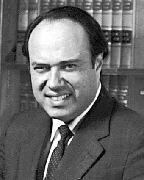A developer client used to tell me that clients liked to pay lawyers for results. This occurred in the late 60s when I first became a real estate lawyer.
In those days, carbon paper was still used and some lawyers did not keep time records. My law partners, back then, would tell me that I did not charge clients nearly enough for my time.
Today, my law partner in Feldman & Feldman, P.C., and younger daughter, Hettie Feldman, tells me the same thing. She claims that, at one time when she first started working for me in 1999, I was routinely charging one client less than the hourly rate of a real estate paralegal at some of the larger Boston law factories. There are, of course, many ways to charge for legal services. Basing fees on results may be too subjective. Basing fees purely on an hourly basis may encourage some lawyers to be inefficient and spend too many hours on a matter, especially when they are not busy otherwise. Some firms have a partner and an associate work on a case rather than have just the partner or just the associate do the work. For reference, I recommend John Grisham's new novel, aptly entitled, The Associate. In tax abatements cases, I can charge on a contingent fee basis. I can not do this on transactional real estate or leasing matters.
I have been keeping time records and billing by the hour for my entire professional life. However, I do believe that billing on an hourly basis may not make sense in a difficult real estate market. Clients need to know what their legal costs are going to be. When possible and appropriate, a fixed fee for a closing and/or a project may well be the way to charge legal fees. Especially when times are tough like they are today, lawyers have to be willing to work with their clients.
Saul Feldman, Esq. is a real estate lawyer with the Law Offices of Feldman & Feldman, P.C., Boston.
Tags:









